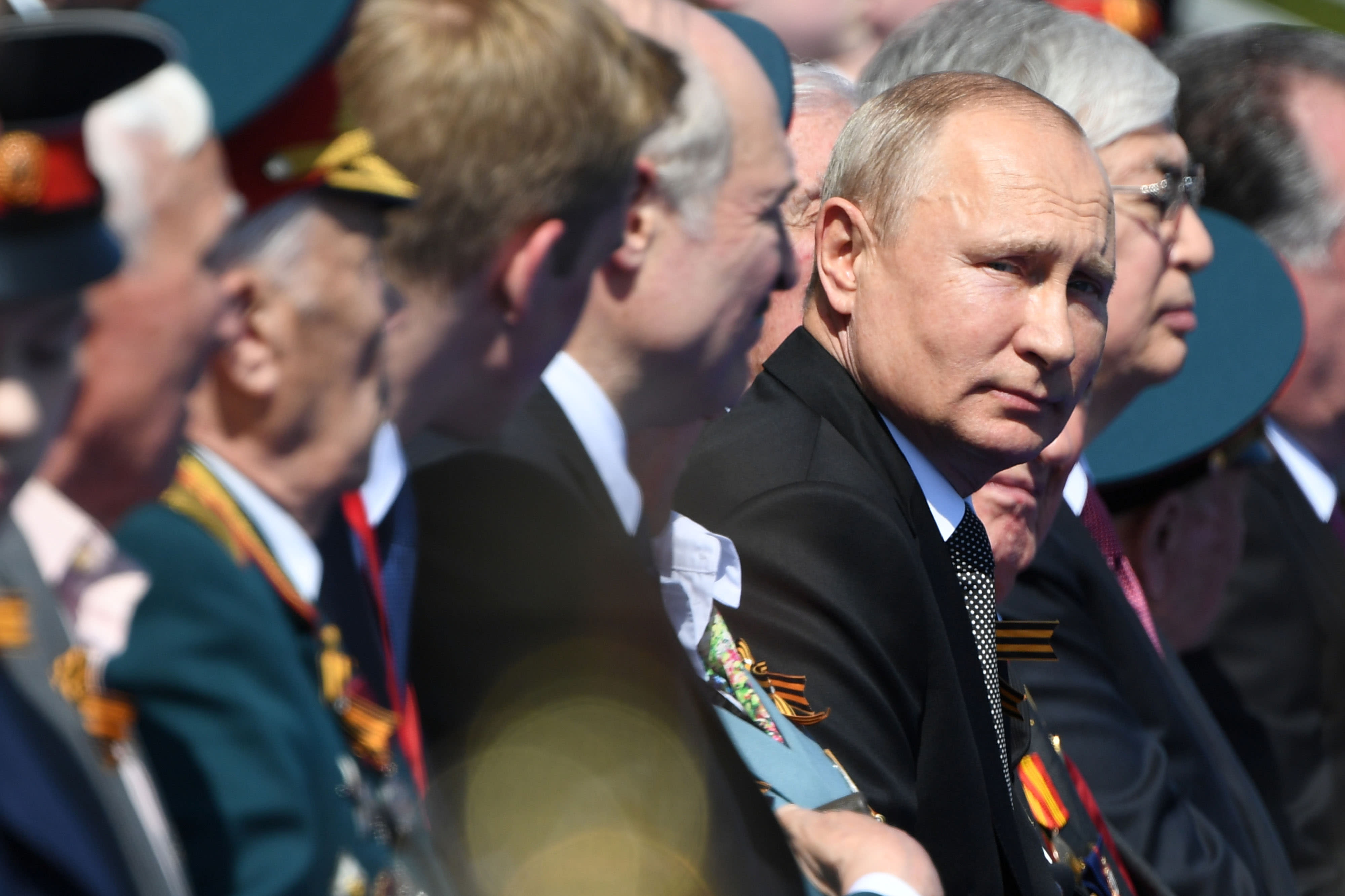
President of Russia Vladimir Putin looks on prior to the Victory Day military parade in Red Square marking the 75th anniversary of the victory in World War II, on June 24, 2020 in Moscow, Russia.
Handout
Foreign ministers from the Group of Seven (G-7) developed nations are to meet in London on Tuesday to discuss the most pressing geopolitical challenges facing the world, including Russia and China.
The U.K. is hosting G-7 foreign and development ministers in the first face-to-face meetings since the coronavirus pandemic began, and the first gathering of the group’s foreign ministers since 2019.
Geopolitical issues that the U.K. said “threaten to undermine democracy, freedoms and human rights” will be on the agenda Tuesday, including “relations with Russia, China, and Iran, as well as the crisis in Myanmar, the violence in Ethiopia, and the ongoing war in Syria,” the government said in a statement.
Russia’s “ongoing malign activity,” the U.K. said, including the build-up of troops on the border with Ukraine, its imprisonment of opposition figure Alexei Navalny and the situation in Belarus, are high on the agenda.
On Monday, British Foreign Minister Dominic Raab met with U.S. Secretary of State Antony Blinken. At a press conference, they reiterated their shared commitment to “maintaining transatlantic unity in defense of our common values and in response to direct threats,” Blinken said.
‘Shared challenges’
The talks come ahead of a larger G-7 summit in Cornwall in early June, which will be attended by G-7 leaders including U.S. President Joe Biden who will make his first scheduled trip abroad since taking office.
The G-7 is an alliance of the world’s most industrialized nations: the U.K., U.S., Canada, France, Germany, Italy and Japan. The EU participates in all discussions as a guest.
Following talks through the day Tuesday, the foreign ministers will then hold a dinner discussion with guest countries Australia, India, South Korea, South Africa, and Brunei as the current ASEAN Chair.
Diplomatic relations between the G-7 with Russia remain strained since its 2014 annexation of Crimea from Ukraine which led to Russia’s suspension from what was then the Group of Eight (G-8) and international sanctions being imposed on Russia.
Since then, Russia’s interference in the 2016 U.S. election, a 2018 nerve agent attack in the U.K., a cyberattack on U.S. government and corporate networks and alleged interference in the 2020 election have prompted further sanctions on the country. The Russian government has repeatedly denied all of the allegations.
Meanwhile, relations between the West and China remain at an impasse since the departure of former U.S. President Donald Trump, yet questions remain over the future of international trade.
International relations with Iran are also in the spotlight after the Biden administration said it was willing to hold talks to potentially revive the 2015 nuclear agreement with the Islamic Republic. Trump withdrew the U.S. from the accord in 2018.
‘Rising threats’
The U.K. currently holds the rotating presidency of the G-7 and Foreign Minister Raab commented that the U.K.’s presidency “is an opportunity to bring together open, democratic societies and demonstrate unity at a time when it is much needed to tackle shared challenges and rising threats.”
Tuesday’s discussions will also cover tensions and escalating conflicts in other parts of the world, including the coup in Myanmar. The U.K. said it would urge G-7 nations to take stronger action against the military junta, including expanding targeted sanctions against those connected to the junta; support for arms embargoes; and increased humanitarian assistance for the most vulnerable in the country.
U.S. Secretary of State Antony Blinken (L) and British Foreign Secretary Dominic Raab (R) walk along Downing Street in London, United Kingdom on May 03, 2021.
Anadolu Agency | Anadolu Agency | Getty Images
The situation in Libya, and the ongoing war in Syria are also on the agenda. On Tuesday afternoon, the group will discuss the situation in Ethiopia, as well as Somalia, the Sahel, and Western Balkans.
The London meetings take place as developed nations slowly resume in-person diplomacy after a hiatus due to the pandemic; the last meeting of G-7 foreign ministers took place in April 2019 at Dinard and Saint-Malo in France.
The U.K. said Tuesday’s meeting was a crucial opportunity to revitalize in-person diplomacy and, in addition to geopolitical matters, “will look to establish a shared approach among the world’s leading democracies on equitable vaccine access, to agree global girls’ education targets, rigorous goals on climate finance and new measures to prevent famine and food insecurity.”
The talks in London come ahead of a high-profile G-7 leaders summit in Cornwall on June 11-13 where U.K. Prime Minister Boris Johnson will gather leaders of member nations, the EU and guest countries.
Covid-secure measures are in place for the London talks, including daily coronavirus testing. All domestic social distancing guidelines will be in force, the U.K. said.




